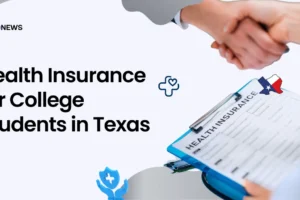Are you searching for information on Health insurance for OPT students? then you are on the right article. OPT or Optional Practical Training is an employment authorization that permits F1 students to apply their knowledge to practical work experience. Students are often entitled to have around 12 months or more of Optional Practical Training before or after they complete their degree program without the need to obtain an H1B visa.
Table of Contents
However, after completing OPT, students are not eligible for the school’s insurance plan and the employer will not provide international student health insurance. In such situations, students will need coverage until they have found a permanent position. OPT international student insurance plan will cover the student for the entire period they require.
These plans can be purchased while students are in school and kept throughout OPT or students can purchase them after graduation. Additionally, students can enroll in these programs while waiting for a job for as little as 15 days or even up to four years.
Key Takeaways:
- OPT allows students on F1 visas to gain practical experience in the country.
- Students undergoing OPT after graduation lose their student visa and if students have domestic insurance before school, they are not eligible for OPT student insurance.
- Students are required to follow the insurance guidelines set out by the school.
- There are various benefits of health insurance for OPT students such as medical coverage, emergency services, mental health coverage, and more.
- OPT insurance coverage level options include platinum package, gold package, silver package, and bronze package.
What is health insurance for OPT students?
A student’s educational institution may sometimes specify the minimum medical coverage required for the OPT insurance plan. If not, students have to consider how much they would be able to pay for themselves. Medical coverage includes the maximum amount that an insurance plan will pay.
It also includes a deductible and a percentage of the bill an insurance plan will cover. It should be kept in mind that in the United States, all health care is private, so students should pay the entire medical bill if they don’t have insurance.
Not all students on an F-1 student visa are eligible for every OPT insurance plan. Factors that could play a role include:
- If students have domestic insurance before school, they may not be eligible for OPT student insurance. Students can look for short or long-term insurance instead.
- Students cannot buy OPT insurance if their employer provides them with insurance although they find it quite expensive.
- If students have graduated from school, they are no longer eligible for international student insurance.
What are the requirements for health insurance for OPT students?
Students and dependents are required to follow the insurance guidelines set out by the school. The school may require students to purchase school-sponsored insurance while others allow them the flexibility of opting out of the plan and choosing a desired insurance plan.
The first step is to contact the school to understand if they have any specific insurance requirements and a sponsored F1 insurance plan for OPT visa holders.
Students should make sure they have access to all the information regarding the medical insurance plan, including the cost and specifics of what is and isn’t covered.
Additionally, check out if students can buy their plan instead of using the school’s. Students are probably compelled to get the insurance if they have the option to reject the school’s plan.
Who needs a student OPT health insurance?
You will probably need health insurance while you are in the country, depending on your visa requirements and the school you are attending. Generally, you can choose to obtain private health insurance on your own or via your school.
The majority of the standards established by prestigious universities and US immigration officials for student visas are met by all international student insurance policies.
OPT health insurance is a short-term insurance alternative for recent graduates who are waiting to be eligible for their employer-sponsored healthcare or other compliant healthcare.
Private insurance plans for international students are typically less expensive and offer comparable coverage to those offered by US universities.
Furthermore, to deduct the cost of your tuition for the health insurance premium if you purchase a plan from a private provider, your college or institution may require confirmation of coverage at the time of enrolling.
What are the benefits of health insurance for OPT students?
1. Reduces the burden of medical expenses:
In the United States, the cost of healthcare is out of control: some patients spend more than $20,000 a day in the hospital, while some only see a doctor once for $500.
Students are required to cover the cost out of pocket if there is no insurance. You run the danger of not being able to return to the United States if you decide to seek medical attention in your home country, whether it’s due to unstable status during OPT or because you don’t have steady work.
2. F1 visa insurance premiums are quite low:
During the OPT term, you can still obtain an F1 visa and purchase an inexpensive alternative health insurance plan that is significantly less expensive than the insurance of many U.S. residents or green cards.
Additionally, there are more options and a more flexible coverage period because school insurance is no longer required during OPT.
Employer-sponsored OPT insurance for students:
Your OPT employer may cover health care costs. The expenses of a medical evacuation or the return of a deceased person’s remains to an international location might not be covered by that coverage. It would be necessary to get additional coverage if this were the case.
Medical insurance policies vary based on the coverage being offered and the cost of the plan. During the selection process of the plan, students should carefully consider their own needs and the needs of their families, if applicable.
Getting enough medical insurance coverage is the best method to guard against future medical expenses for you and your family. Should you become ill or have an accident while in the US, your annual OPT employment income may not cover the full cost of medical care.
Keep in mind that health insurance has some limitations. You bear the financial obligation to cover any expenses that are above what is stated. Furthermore, regardless of the situation, do not expect that your treatment will be fully paid for. The insurance plan’s “Exclusions and Limitations” sections should be carefully read so you are aware of what is and is not covered.
What are the OPT insurance coverage level options?
The health insurance for OPT students has several options for the level of coverage desired. They are:
1. Platinum/Elite:
This plan level offers the most extensive coverage available. With a maximum medical benefit of $5,000,000, or $500,000 for each disease, and the highest coverage after a deductible, it is undoubtedly the best plan available. Benefits for maternity needs and college athletics are included, and coverage for previous conditions begins after six months.
2. Gold/select:
The maximum medical benefit is $600,000, with 80% coverage up to $5,000 and 100% coverage up to the maximum amount following the deductible. Maternity and collegiate athletics benefits are offered, and coverage for prior conditions begins after six months.
3. Silver/Budget:
This plan is extremely cost-effective. There is a deductible before the $500,000 maximum coverage begins. Up to a maximum medical benefit of $25,000, there is 80% coverage; above that, 100% coverage is provided. After a year, pre-existing conditions are covered, and collegiate sports and pregnancy are partially covered.
4. Bronze/smart:
This plan is the most economical option. After the deductible, you pay 80% of the maximum coverage amount when you have a $200,000 maximum benefit. Pre-existing conditions are only covered in cases of acute onset; pregnancy and college sports are not covered.
How much does health insurance for OPT students cost?
The monthly payments for the plans range from $35 to $100. An OPT applicant will typically pay $50 a month for a basic package. Your age, the deductible you choose, and the plan’s coverage will all have an impact on the final cost.
Frequently Asked Questions:
1. Can a student get health insurance in the USA?
If your school provides student health insurance, signing up for it can be a simple and cost-effective method to obtain basic insurance. Most of the time, enrollment in a student health plan qualifies as qualified health coverage.
2. What is the OPT period in the US?
Optional Practical Training (OPT) is a 12-month work license granted to F-1 international students who have completed at least two semesters of full-time studies and intend to pursue employment in their fields of study in the United States.
3. Who is eligible for OPT?
After you have been lawfully enrolled full-time for a full academic year at a college, university, conservatory, or seminary that has been certified by the U.S. Immigration and Customs Enforcement (ICE) Student and Exchange Visitor program, you may petition to engage in pre-completion OPT.
4. Is health insurance mandatory for an F1 visa?
The US Department of State states that students do not need to get health insurance to be eligible for an F1 visa.
Conclusion:
It’s possible that international OPT students don’t have health insurance through their college or university. They can purchase a health insurance plan from a marketplace because, in the United States, owning health insurance is crucial.
OPT students have a wide range of insurance plan options to choose from. Certain products are more expensive but offer better coverage, while others are more reasonably priced but offer less coverage.
The most crucial thing to think about is whether these plans include coverage for certain needs like pregnancy, pre-existing medical disorders, dangerous sports, and COVID-19 coverage for the coronavirus.












Add Comment